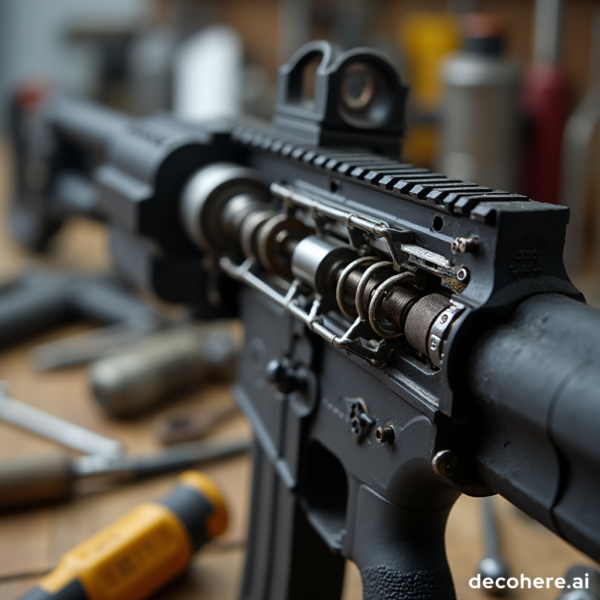Should You Choose an Intel i5 or i7 for Gaming? A Practical Guide for Gamers in 2025
Introduction: Choosing the Right Processor for Gaming
Deciding between an Intel i5 and i7 processor for gaming can be challenging, especially with rapid advancements and frequent releases. Both processors deliver strong performance, but the ideal choice depends on your gaming habits, budget, and whether you multitask or use your PC for demanding workloads beyond gaming. This guide provides detailed, actionable guidance to help you make an informed decision, using only verified, up-to-date information from trusted sources.
Understanding the Core Differences: i5 vs. i7
The main distinction between Intel Core i5 and i7 processors lies in core count, thread count, and cache size . Typically, i7 processors offer more cores and threads due to Intel’s Hyper-Threading technology, and they come with larger cache sizes. For example, an i7-13700K features 16 threads, while an i5-13600K offers 14 threads, with the i7 benefiting from a larger L3 cache as well. [3] This gives the i7 an advantage in multitasking and data-heavy operations.
However, raw gaming performance often depends more on core speed than thread count. Many modern games still prioritize single-core performance, making the difference between i5 and i7 less pronounced in real-world gaming benchmarks. [1]
Gaming Performance: i5 vs. i7 in Real-World Scenarios
For most gamers, a current-generation i5 processor delivers nearly identical frame rates to its i7 counterpart in the majority of games. Benchmark comparisons between the i5-13600K and i7-13700K show a performance gain of roughly 6% in single-core and up to 24% in multi-core benchmarks for the i7, but this translates to only minor improvements in gaming if games do not utilize the extra threads. [3] [4]
In practice, you may see a difference of only a few frames per second in most titles. Unless you are playing heavily multi-threaded games or plan to game while streaming, the i5 remains a highly competitive choice. [2]
Multitasking and Future-Proofing: When Does i7 Make Sense?
The i7 excels in multitasking and is the preferred choice if you:
- Stream or record gameplay while playing
- Run multiple applications simultaneously (video editing, 3D modeling, browser tabs)
- Anticipate using your PC for professional workloads beyond gaming
With more threads and a larger cache, the i7 can handle these scenarios more smoothly, offering better responsiveness under heavy multitasking loads. [3] [1]
Cost Considerations: Value for Your Money
A significant factor is cost. i7 processors are noticeably more expensive than i5 models, sometimes by $100-$200 or more, depending on the generation and market availability. For many gamers, the added cost does not translate into a proportional increase in gaming performance. [1]
If your main priority is gaming and you do not need extra multitasking power, you may get better value by investing the savings from an i5 into a faster graphics card or more RAM, both of which can have a greater impact on your gaming experience.
Power Consumption and Efficiency
i5 processors generally consume less power than i7 models, making them more energy-efficient options for mainstream setups. This can be important if you are concerned about electricity usage or thermal output, especially in compact gaming rigs. [1]
Step-by-Step Guidance: How to Choose the Right CPU for Gaming
- Identify Your Gaming Needs: List your favorite games and check their recommended CPU requirements. For most modern titles, an i5 is sufficient, but check for exceptions in new releases.
- Consider Your Usage Beyond Gaming: If you edit videos, stream, or run intensive software, an i7 may be warranted for smoother multitasking.
- Set Your Budget: Determine how much you are willing to spend. Remember, the price difference between i5 and i7 could be reallocated to a better GPU or more storage.
- Research Current CPU Generations: Compare the latest i5 and i7 models using benchmarks from trusted sources. Look for real-world gaming tests, not just synthetic benchmarks.
- Evaluate Upgrade Paths: If you plan to upgrade your PC in the next few years, an i5 may offer greater value, with the potential to upgrade to an i7 later as prices drop.
- Purchase from Authorized Retailers: To ensure warranty support and compatibility, buy processors from established retailers or the official Intel website. If you need assistance, visit the official Intel support portal or contact their customer service for advice on compatible hardware.
For step-by-step help in selecting and installing a CPU, many major retailers provide live chat or phone support. You can also contact your favorite PC hardware store for detailed recommendations tailored to your needs.
Real-World Examples and Alternatives
Example 1: Competitive Gamer A player focused on high frame rates in eSports titles like CS:GO or Valorant may find the latest i5 delivers virtually the same performance as an i7, especially when paired with a strong graphics card.
Example 2: Streamer and Content Creator If you plan to stream your gameplay or edit videos while gaming, the i7’s additional threads and cache will provide a smoother experience and faster encoding times. [2]
Alternative Approaches If you cannot afford the latest i7, consider a previous-generation i7, which may be available at a discount and still outperform a new i5 in multitasking. Alternatively, you could opt for an i5 and upgrade other components like your GPU or SSD for a more well-rounded system.
Potential Challenges and Solutions
Challenge: Future-Proofing Some gamers worry about their system becoming outdated. While i7 offers more headroom, games rarely utilize all threads. You can extend your PC’s lifespan by choosing a current-gen i5 and upgrading in the future if your needs change.
Challenge: Compatibility and Upgrades Ensure your motherboard supports the CPU you select. If in doubt, check the motherboard manufacturer’s website for a list of supported processors, or ask a specialist at a reputable hardware retailer.

Source: fity.club
Challenge: Balancing Budget and Performance If you are unsure whether to spend extra for an i7, prioritize your graphics card and RAM, as these often have a greater impact on gaming performance.
How to Access More Information and Get Personalized Advice
If you need further guidance, you can:
- Visit the official Intel website for detailed CPU specifications and compatibility lists.
- Check major PC hardware review sites for up-to-date gaming benchmarks and head-to-head comparisons.
- Contact a trusted local computer store or online retailer for personalized recommendations based on your budget and usage.
- Join gaming forums and Reddit communities to ask real users about their experiences with i5 and i7 processors in current games.
Remember, you can always consult Intel’s official customer support or the support team of your motherboard manufacturer before making a final purchase decision.
Summary: Making Your Choice
For most gamers, a modern Intel i5 is powerful, efficient, and cost-effective for gaming. If you multitask heavily or require enhanced performance for streaming and content creation, an i7 may be worth the additional investment. Carefully assess your budget, gaming preferences, and future needs to make the best choice for your setup. For the latest compatibility information, always refer to the official Intel or motherboard manufacturer’s website.

Source: reddit.com



